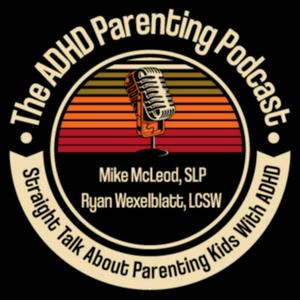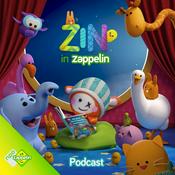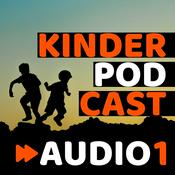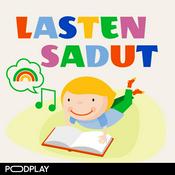53 afleveringen
- In this episode, Mike and Ryan walk through the core questions parents often ask about independence, responsibility, and executive functioning in kids with ADHD—using the framework developed in Mike’s recent book and workbook.
Rather than focusing on behavior management or short-term strategies, the conversation centers on how internal skills develop over time and how parents can support that development in realistic, age-appropriate ways.
Find Mike @ www.grownowadhd.com & on IG
Find Ryan @ www.adhddude.com & on Youtube
{{chapters}}
[00:00:00] Start
[00:03:33] Executive Functioning Playbook Framework
[00:07:00] Internal Skills Vs Behavior
[00:12:55] Self-Awareness, Social Skills, Screens
[00:16:57] Motivation, Burnout, Expectations
[00:18:40] Mental Movies And Self-Evaluation - In this listener Q&A episode, Ryan and Mike tackle some of the most challenging real-life situations parents of kids with ADHD face at home. From bedtime anxiety that spirals into nightly meltdowns, to medication concerns around mood changes and irritability, to constant attention-seeking and dysregulation at home, this episode focuses on what’s really driving these behaviors—and how well-intentioned parenting can sometimes make them worse.
They also discuss how to think about summer camps for kids with ADHD, especially when explosive behavior has led to removals from programs in the past. As always, the emphasis is on practical, research-informed strategies that help kids build independence while protecting parents’ sanity.
Find Mike @ www.grownowadhd.com & on IG
Find Ryan @ www.adhddude.com & on Youtube
{{chapters}}
[00:00:00] Start
[00:02:12] Listener Q&A Overview
[00:05:45] Bedtime Anxiety And Sleep Struggles
[00:07:24] Parental Accommodation And Anxiety
[00:12:15] Medication And Mood Changes
[00:14:12] Inconsistent Medication Effects
[00:19:13] Child Dysregulation And Attention Seeking
[00:22:45] Teaching Self-Regulation At Home
[00:27:13] Summer Camp Decisions For ADHD
[00:31:18] How To Submit Questions - In this episode of the Mike and Ryan break down four widespread myths about ADHD that continue to circulate on social media, in parent groups, and even in professional settings. Using research-based evidence and clinical experience, they explain what’s accurate, what’s not, and why these misconceptions can be unhelpful for families.
Find Mike @ www.grownowadhd.com & on IG
Find Ryan @ www.adhddude.com & on Youtube
{{chapters}}
[00:00:00] Start
[00:00:48] Mike’s Book Announcement
[00:01:42] Ryan’s Certification Program
[00:02:53] Myth One: Seven Types Of ADHD
[00:06:45] Myth Two: Genetic Testing For Medication
[00:10:29] Myth Three: AuDHD As A Diagnosis
[00:14:08] Myth Four: Masking At School
[00:15:15] Why ADHD Behavior Is Context Dependent
[00:24:46] Final Takeaways And Closing Thoughts - This episode breaks down the major misconceptions about ADHD treatment and clarifies what decades of research, major clinical guidelines, and leading experts actually recommend. Ryan and Mike explain why weekly talk therapy is not an evidence-based treatment for ADHD, why parent training and environmental structure are consistently shown to improve outcomes, and how parents can make informed decisions without getting pulled into common myths.
Find Mike @ www.grownowadhd.com & on IG
Find Ryan @ www.adhddude.com & on Youtube
{{chapters}}
[00:00:00] Start
[00:02:21] What clinical guidelines actually recommend
[00:05:27] Dr. Barkley’s research on effective ADHD treatments
[00:09:11] Evidence on CBT, DBT, and play therapy
[00:19:21] Why office-based therapy doesn’t translate to real-world behavior
[00:22:29] Rumination and how talk-heavy approaches can backfire
[00:31:19] Treatments with the strongest evidence (medication, parent training)
Citations:
1. AAP Guideline (Parent Training + Medication as First-Line)Wolraich, M. L., et al. (2019). Clinical practice guideline for ADHD in children and adolescents. Pediatrics, 144(4), e20192528.
2. AACAP Treatment Parameter (Medication + Behavioral)Pliszka, S. R., & AACAP Work Group. (2007). Practice parameter for ADHD. JAACAP, 46(7), 894–921.
3. Barkley: ADHD as Performance DisorderBarkley, R. A. (2012). Executive functions. Guilford Press.Barkley, R. A. (2015). ADHD: Handbook for diagnosis and treatment (4th ed.). Guilford Press.
4. CBT Evidence (Adolescents/Adults, Not Young Children)Safren, S. A., et al. (2010). CBT vs relaxation for adults with ADHD. JAMA, 304(8), 875–880.Solanto, M. V. (2011). CBT for adult ADHD. Guilford Press.Langberg, J. M., et al. (2008). Organization skills intervention for adolescents. JCCP, 76(6), 967–982.
5. DBT-Informed (Pilot Trials, Emotion Dysregulation)Murray, D. W., et al. (2022). DBT skills group for adolescents with ADHD. J Attention Disorders, 26(11), 1421–1430.
6. Play Therapy (Insufficient Evidence)Hassan, R. A., & Shaker, N. S. (2014). CBPT for ADHD symptoms. Int J Psychology & Behavioral Sciences, 4(6), 221–229.
7. EF Skills: Experience-Based, Not Language-BasedBarkley, R. A. (2012). Executive functions. Guilford Press.
8. Rumination and ADHDOstojic, D., et al. (2021). Mind wandering and rumination in youth with ADHD. J Abnormal Child Psychology, 49, 1203–1216.Seymour, K. E., et al. (2014). Emotion regulation mediates ADHD-depression relationship. J Abnormal Child Psychology, 42, 611–621.
9. Time Blindness/Temporal ProcessingToplak, M. E., & Tannock, R. (2005). Time perception deficits in ADHD. J Abnormal Child Psychology, 33(5), 639–654.Barkley, R. A., et al. (2008). ADHD in adults: What the science says. Guilford Press.
10. Parent Behavior Training (Evidence-Based)Chronis, A. M., et al. (2006). Evidence-based treatments for children with ADHD. Clinical Psychology Review, 26(4), 486–502.Evans, S. W., et al. (2014). Evidence-based treatments for ADHD. JCCAP, 43(4), 527–551.
11. Medication as First-LineFaraone, S. V., et al. (2021). Stimulant effectiveness and safety. World Psychiatry, 20(3), 314–329.Swanson, J. M., et al. (2017). MTA study long-term outcomes. JAACAP, 56(3), 228–240. - This is part 2 of "Your Child Is Not Your Co-Parent". Ryan and Mike continue examining why popular “gentle” and heavy emotional-validation parenting approaches often backfire for kids with ADHD. They break down the research, explain the leadership needs of ADHD brains, and outline why overtalking, overprocessing, and overnegotiating increase dysregulation rather than calming it.
Find Mike @ www.grownowadhd.com & on IG
Find Ryan @ www.adhddude.com & on Youtube
{{chapters}}
[00:00:00] Start
[00:00:46] Rise of emotional-validation parenting
[00:01:58] Why emotional processing overwhelms ADHD brains
[00:02:48] ADHD kids’ need for clear leadership and hierarchy
[00:05:20] How “armchair therapy” increases dysregulation
[00:07:07] Why too much talking makes tasks feel bigger
[00:08:29] Non-hierarchical relationships and rising anxiety
[00:10:08] Impact of inconsistent leadership
[00:12:26] Comfort-zone parenting and avoidance
[00:13:58] The “four D’s” and building flexibility
[00:15:48] How avoidance worsens anxiety and rigidity
[00:17:13] How guidance—not rescue—builds confidence
[00:18:16] Three core takeaways for ADHD parents
Citations:
Baumrind, D. (1991). The influence of parenting style on adolescent competence and substance use. Journal of Early Adolescence, 11(1), 56–95.
Chronis-Tuscano, A., et al. (2011). Parenting behavior and child conduct problems in children with ADHD. Journal of Clinical Child and Adolescent Psychology, 40(1), 44–57.
Evans, S. W., Owens, J. S., & Bunford, N. (2014). Evidence based psychosocial treatments for children and adolescents with attention deficit hyperactivity disorder. Journal of Clinical Child and Adolescent Psychology, 43(4), 527–551.
Johnston, C., & Mash, E. J. (2001). Families of children with attention deficit hyperactivity disorder. Journal of Clinical Child Psychology, 30(4), 479–495.
Ma, I., van Duijvenvoorde, A. C. K., & Scheres, A. (2020). Cognitive rigidity in ADHD. Journal of Attention Disorders, 24(5), 707–718.
Steinberg, L. (2001). We know some things: Parent adolescent relationships in retrospect and prospect. Journal of Research on Adolescence, 11(1), 1–19.
Meer Kind en gezin podcasts
Trending Kind en gezin -podcasts
Over The ADHD Parenting Podcast
The ADHD Parenting Podcast helps parents of children and teens with ADHD improve behavior, emotional regulation, executive function, and cooperation at home and school. Hosted by Ryan Wexelblatt, LCSW, founder of ADHD Dude, and Mike McLeod, SLP, executive function specialist and author of The Executive Function Playbook, each episode delivers practical, evidence-informed strategies for reducing conflict, strengthening routines, supporting school success, and helping kids with ADHD build independence and confidence.
Podcast websiteLuister naar The ADHD Parenting Podcast, NOS Jeugdjournaal en vele andere podcasts van over de hele wereld met de radio.net-app

Ontvang de gratis radio.net app
- Zenders en podcasts om te bookmarken
- Streamen via Wi-Fi of Bluetooth
- Ondersteunt Carplay & Android Auto
- Veel andere app-functies
Ontvang de gratis radio.net app
- Zenders en podcasts om te bookmarken
- Streamen via Wi-Fi of Bluetooth
- Ondersteunt Carplay & Android Auto
- Veel andere app-functies


The ADHD Parenting Podcast
Scan de code,
download de app,
luisteren.
download de app,
luisteren.






































